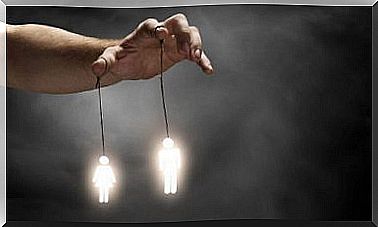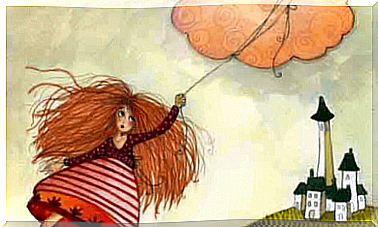The Two Faces Of Shyness

Being shy does not mean that you are deficient in anything, nor is it a virtue in and of itself. It is simply a quality that depends on a person’s temperament and experience. Even so, many people consider shyness to be a problem that they definitely need to get rid of.
It is true, however, that shy people face certain problems in social situations: it is not easy for them to break the ice and start a conversation, and they do not feel comfortable talking about themselves. All of these can negatively affect their relationships with others. Shyness is based on a lack of self-confidence, a feeling that one is not worth the attention or recognition of others, and that one does not have the right to be recognized as a person. So shy people are ashamed of themselves and attach too much importance to the opinion of others.
“Shyness is a kink in the soul, a special category, a dimension that leads to loneliness.”
Pablo Neruda
But that doesn’t mean shy people are predestined to fail. That they have difficulties in social relationships has nothing to do with their intellectual or emotional abilities. Sometimes it can even be beneficial to be shy. If you don’t believe this, check out the various historical figures who, despite their shyness, did great things.
Shyness: A hallmark of great personalities
It is said that Agatha Christie, the famous novelist, had an unusual experience because of her shyness. In 1958 she was preparing for a celebration to be held in her honor at the famous Savoy Hotel in London. When she got there, however, the doorman did not recognize her and therefore did not let her enter.

She felt unable to contradict the confused doorman and wordlessly turned her back to take a seat in the waiting room. From there she listened to the celebration in her honor. At the time she was 67 years old and had written over 60 novels that were read all over the world.
As for Charles Darwin, he trembled when he had to speak in public. He did not feel able to speak in front of an audience. English actor Dick Bogarde even vomited regularly before going on stage. He was excellent on stage as long as he wasn’t facing his audience.
Shyness, introversion and tragedy
There are shy people and there are extremely shy people. Dr. Henry Heimlich, for example, who invented a method to save someone who is on the verge of suffocation, said that many people could die from their shyness. If they felt like they were breathless, they would move away from the group rather than face the embarrassment and cough and thereby attract attention.

Many people equate shyness with introversion, but they are different things. An introvert simply likes to be alone and is not comfortable in social situations. She doesn’t care too much about the opinions of others and is not shy about advocating her own.
In contrast, shy people feel terribly nervous and would like to be more open, but they can’t. Their feelings of shame are so strong that they fear that anything they do or say could get on other people’s nerves.
The benefits of shyness
On the one hand, shyness can be tragic, on the other hand it can act as a defense mechanism. In nature, the boldest and bravest catch the richest prey and snatch the best partners, but they are also the quickest to die and to suffer the worst wounds in the course of their lives.

Shy individuals feel compelled to compensate for this trait on another level. For example, they tend to repeat what they hear and say over and over again. They mostly have a better memory and well-developed linguistic abilities, even if these are usually more apparent in written than oral. Shy people are also often better than average at being able to work methodically and with concentration. Because they are so uncertain about the results of their actions and projects, they plan and implement them with great care.
But when shyness really affects a person severely, it cannot be seen as an advantage. In these cases it can also be unnecessary suffering, which is probably based on a social phobia. If shyness is indeed synonymous with unhappiness, there are effective treatment options worth researching about.









